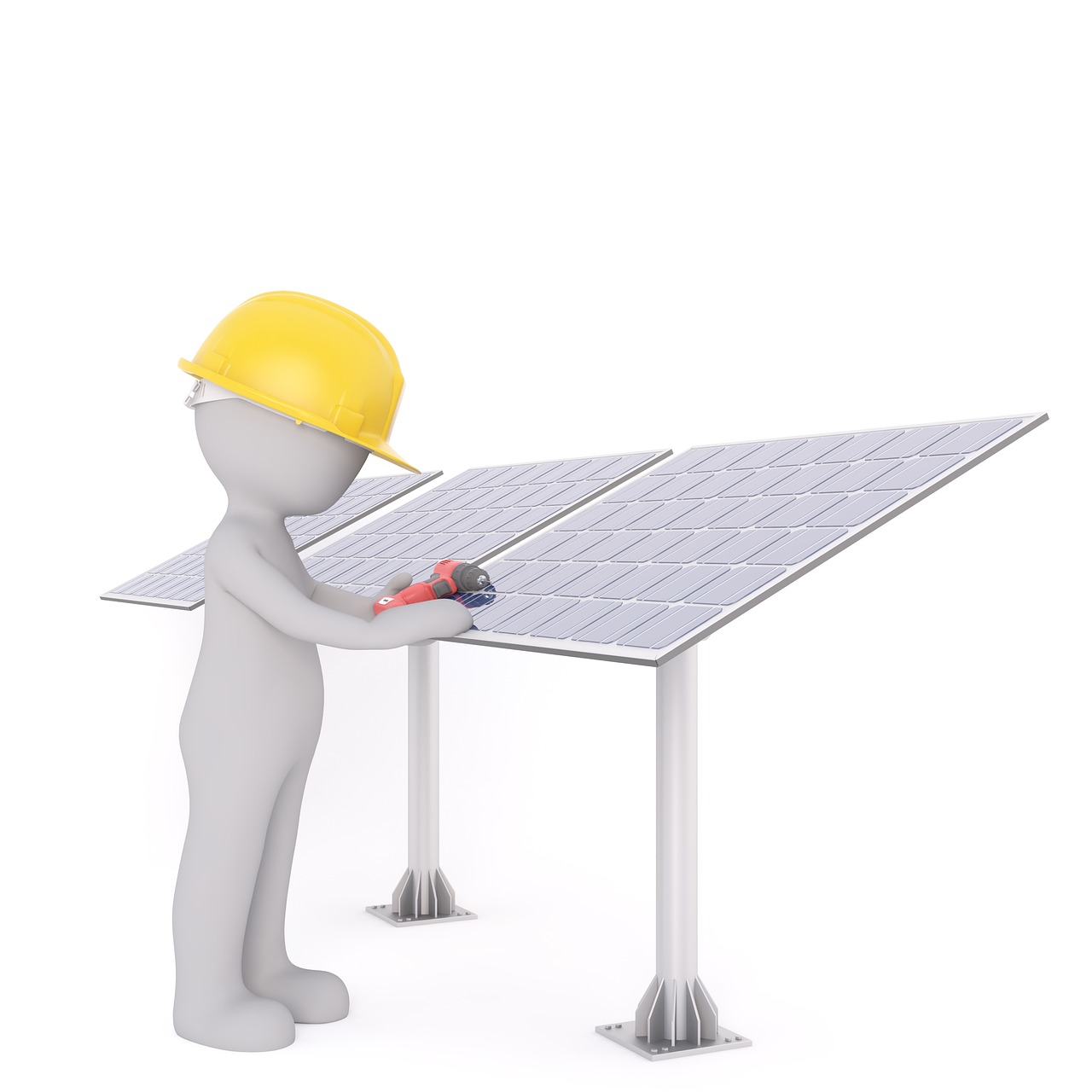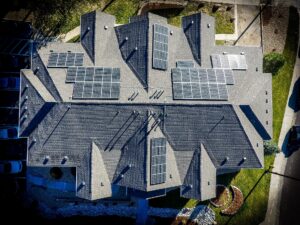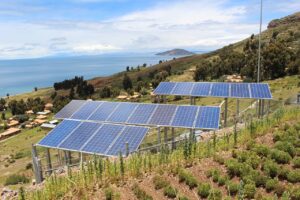Thinking about going green and wanting to reduce your carbon footprint? Installing solar panels might just be the answer you’re looking for. But before you jump into any DIY projects, you might be wondering, “Can I install solar panels myself?” Well, the short answer is yes, it is possible. However, there are several factors to consider and challenges to overcome. In this article, we will explore the ins and outs of DIY solar panel installation, weighing the pros and cons to help you make an informed decision. So, put on your solar-powered thinking cap and let’s get started!
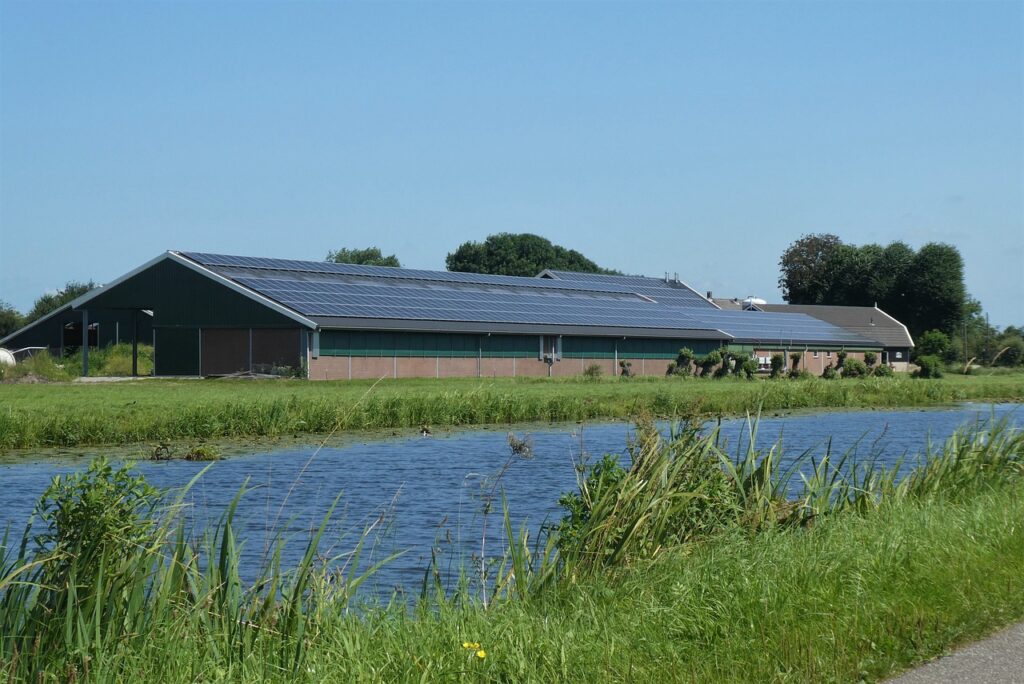
Understanding Solar Panels
What are solar panels?
Solar panels are devices that convert sunlight into electricity. They are made up of photovoltaic (PV) cells, which absorb sunlight and generate direct current (DC) electricity. Solar panels are typically installed on rooftops or in open areas to take advantage of the sun’s energy.
How do solar panels work?
Solar panels work by utilizing the photovoltaic effect. When sunlight hits the PV cells, the photons in the sunlight excite the electrons in the cells, resulting in the generation of an electric current. This direct current (DC) electricity is converted into alternating current (AC) electricity with the help of an inverter, which can then be used to power our homes and buildings.
Types of solar panels
There are several types of solar panels available in the market. The most common type is the monocrystalline solar panel, which is made of a single crystal structure. These panels are highly efficient but tend to be more expensive. Another type is the polycrystalline solar panel, which is made up of multiple crystals. These panels are slightly less efficient but generally have a lower cost. Thin-film solar panels are another option and are made by depositing a thin layer of photovoltaic material onto a base material like glass or metal. While they are less efficient, thin-film panels are more flexible and can be used in unique applications.
Benefits of Installing Solar Panels
Reduced electricity bills
One of the key benefits of installing solar panels is the potential for significant savings on electricity bills. By generating your own electricity, you can reduce or even eliminate your reliance on the grid, thereby reducing your monthly electricity expenses.
Environmental benefits
Solar panels produce clean, renewable energy, which helps to reduce greenhouse gas emissions. By utilizing solar power, we can decrease our carbon footprint and contribute to a more sustainable future. Solar energy is a reliable and abundant source of power, and harnessing it helps to protect the environment and combat climate change.
Potential government incentives
Many governments incentivize the installation of solar panels by offering various rebates, tax credits, and grants. These incentives can help to offset the upfront costs of installing solar panels and make the investment more affordable. It’s important to research and understand the available incentives in your local area to maximize the financial benefits of going solar.
Increase in property value
Installing solar panels can also significantly increase the value of your property. Studies have shown that homes equipped with solar panels tend to sell for a higher price compared to homes without solar. Potential buyers are attracted to the idea of reduced electricity bills and the long-term financial benefits of owning a solar-powered home, making solar panels a valuable investment.
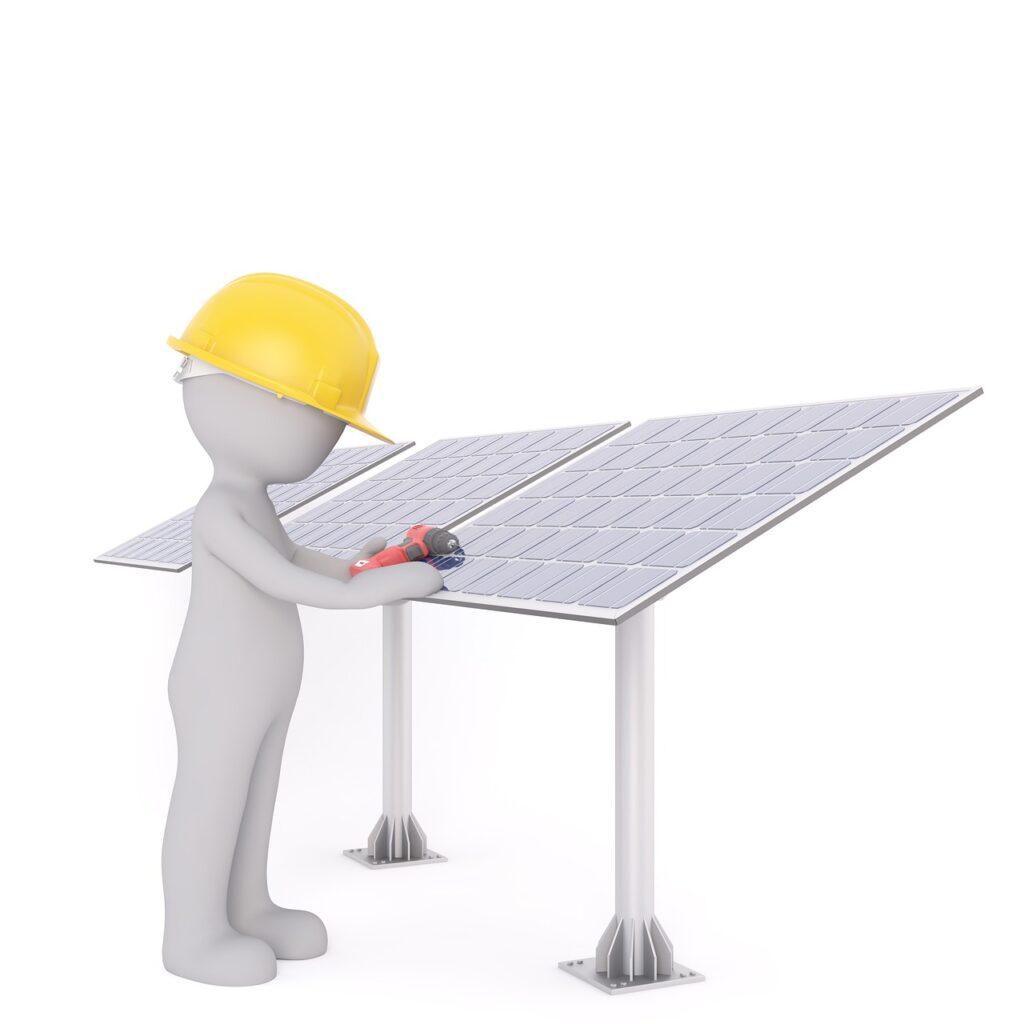
Assessing Your Eligibility
Determining your energy needs
Before considering solar panel installation, it’s crucial to assess your energy needs. Analyze your electricity bills to understand your average monthly consumption. This information will help you determine the size of the solar system required to meet your energy demand effectively.
Analyzing your roof’s suitability
Solar panels are typically installed on rooftops, so it’s important to evaluate if your roof is suitable for solar panel installation. Factors to consider include the orientation and tilt of your roof, the presence of shading from trees or buildings, and the structural integrity of your roof. A south-facing roof with minimal shading and a sturdy structure is ideal for maximizing the solar panel’s efficiency.
Checking for local regulations and permits
Before installing solar panels, it’s crucial to check for any local regulations or permits required. Some areas have specific requirements for solar panel installations, such as setback requirements, size limitations, and aesthetic guidelines. It’s essential to comply with these regulations to ensure a smooth installation process.
Skills and Knowledge Required
Understanding electrical systems
A basic understanding of electrical systems is necessary for solar panel installation. Knowledge of electrical wiring, circuitry, and safety protocols is vital when connecting the solar panels to your home’s electrical system. While not absolutely required, it is recommended to have a licensed electrician review and approve the installation to ensure compliance with local electrical codes.
Basic construction and carpentry skills
Solar panel installation requires some basic construction and carpentry skills. These skills will be necessary for mounting the solar panels securely on the roof and ensuring they are properly angled for maximum sunlight exposure. Familiarity with tools such as drills, saws, and levels will be beneficial during the installation process.
Knowledge of local building codes and regulations
Having knowledge of local building codes and regulations is essential to ensure compliance throughout the solar panel installation process. These codes may dictate the type of equipment and materials used, the location and orientation of the solar panels, and the necessary permits and inspections required. Understanding and adhering to these regulations is vital to avoid potential legal and safety issues.
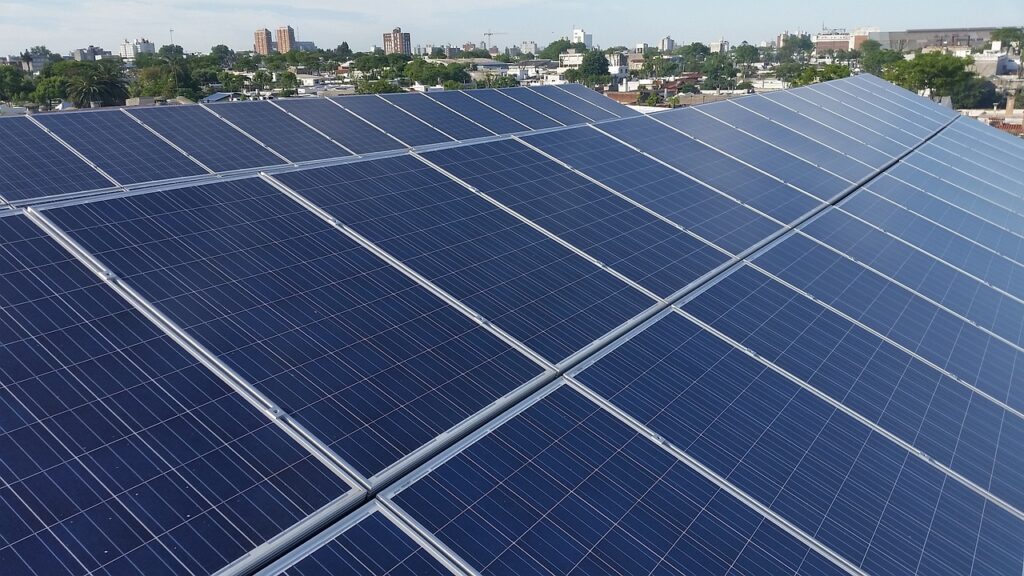
Tools and Equipment Needed
Solar panels and mounting hardware
The main equipment needed for solar panel installation includes the solar panels themselves and the necessary mounting hardware. Solar panels come in various sizes and wattages, so it’s important to choose panels that meet your energy needs and are compatible with your mounting system. Mounting hardware typically includes roof racks, rails, clamps, and brackets to secure the panels to your roof.
Wiring and electrical components
To connect the solar panels to your home’s electrical system, you will need wiring and electrical components. This includes cables, connectors, junction boxes, and an inverter to convert the DC electricity produced by the solar panels into AC electricity that can be used in your home.
Ladder or scaffolding
Installing solar panels on your roof may require a ladder or scaffolding to safely access the installation site. It is important to prioritize safety and ensure you have the necessary equipment to work at heights, following all the proper precautions.
Safety equipment
Safety should always be a priority during the solar panel installation process. Safety equipment such as gloves, safety glasses, and a harness may be necessary to protect yourself during the installation. It’s important to follow all safety guidelines and take precautions to prevent accidents and injuries.
Cost Considerations
Upfront cost of solar panels
While solar panels can provide long-term financial savings, there is an upfront cost associated with their installation. The cost of solar panels varies depending on the size of the system, the quality of the panels, and the specific requirements of your installation. It’s important to research and compare prices from different suppliers to ensure you get the best value for your investment.
Return on investment
Installing solar panels can provide a significant return on investment over time. By generating your own electricity, you can reduce or eliminate your monthly electricity bills, resulting in long-term savings. The exact return on investment will depend on factors such as the cost of electricity in your area, the size and efficiency of your solar system, and any available government incentives.
Professional installation vs. DIY
Deciding between professional installation and a DIY approach is an important consideration when assessing the cost of solar panels. While professional installation ensures a high-quality and efficient system, it comes at a higher cost. DIY installation, on the other hand, can save you money, but it requires a certain level of skills, knowledge, and time commitment. It’s essential to weigh the cost savings against the potential risks and challenges associated with DIY installation.
Step-by-Step Solar Panel Installation Process
Designing your solar system
Before starting the installation process, it’s important to design your solar system. This involves determining the number of solar panels needed, the optimal placement on your roof, and the electrical configuration required. It may be beneficial to consult with a professional or use online design tools to ensure maximum efficiency and effectiveness.
Obtaining necessary permits
Before beginning the installation, it is important to obtain any necessary permits and approvals from your local authorities. This includes permits for electrical work, building permits, and potentially permits related to the aesthetics of your solar panel installation. Failing to obtain the necessary permits can result in fines and complications down the line.
Preparation of the installation site
Preparing the installation site involves ensuring the roof is clean and free from debris before mounting the solar panels. It may also involve reinforcing the roof structure if necessary to support the additional weight of the panels. Proper preparation ensures a secure and long-lasting installation.
Mounting the solar panels
Once the installation site is prepared, it’s time to mount the solar panels. This involves attaching the mounting hardware to the roof and securing the panels in place. The panels should be angled properly to optimize sunlight absorption and energy production. It’s important to follow the manufacturer’s instructions and any local regulations when mounting the panels.
Wiring and electrical connections
After the solar panels are mounted, the wiring and electrical connections need to be completed. This includes connecting the panels to the inverter and the inverter to the main electrical panel in your home. It is recommended to have a qualified electrician review and approve the wiring to ensure it is done correctly and safely.
Safety precautions
Throughout the installation process, it’s important to prioritize safety. Use safety equipment, follow proper ladder and scaffolding procedures, and take precautions to avoid electrical hazards. If you are unsure or uncomfortable with any aspect of the installation, it is best to seek professional assistance to ensure the safety of yourself and your property.
Potential Challenges and Risks
Working at heights
One of the main challenges of installing solar panels is the requirement to work at heights. This can present a risk of falls and injuries if not approached with caution. It’s essential to use proper safety equipment, follow safety guidelines, and take necessary precautions when working on rooftops or elevated surfaces.
Electrical hazards
Working with electrical components and wiring poses the risk of electrical hazards. Inadequate knowledge of electrical systems or improper installation can result in electric shocks or fires. It’s important to have a thorough understanding of electrical safety and follow proper procedures to minimize these risks.
Incorrect installation affecting performance
Improper installation of solar panels can result in reduced performance and efficiency. Factors such as incorrect angling, shading, or poor electrical connections can significantly impact the energy production of the system. It’s essential to follow proper installation guidelines and consult with professionals or resources to ensure proper installation practices.
Voiding panel warranties
Installing solar panels incorrectly or without proper knowledge may void the manufacturer’s warranty. It’s important to understand and adhere to the manufacturer’s guidelines when installing the panels to avoid any issues with warranty claims in the future. If unsure, it’s best to consult with professionals or seek assistance to ensure compliance.
Complexity of system troubleshooting
In the event of system malfunctions or troubleshooting needs, solar panel installations can be complex to diagnose and repair without the necessary technical knowledge. It’s important to consider the ongoing maintenance and troubleshooting of the system, especially if opting for a DIY installation. Having the ability to identify and resolve potential issues is crucial to ensure the smooth operation of the solar panel system.
Seeking Professional Assistance
Consulting with solar installation companies
When considering solar panel installation, it’s highly recommended to consult with solar installation companies in your area. These professionals have the knowledge and expertise to assess your specific needs, design an efficient system, and provide accurate cost estimates. They can also guide you through the permitting process and ensure compliance with local regulations.
Getting multiple quotes
To make an informed decision, it’s beneficial to obtain multiple quotes from different solar installation companies. This allows you to compare costs, services, and warranties. Additionally, multiple quotes provide a better understanding of the potential return on investment and can help in negotiating a favorable deal.
Comparing benefits of professional installation
Professional installation offers several benefits, including peace of mind, high-quality workmanship, and efficient system design. These professionals have experience working with a range of systems and can ensure that your solar panel installation is optimized for performance and longevity. Consider the long-term benefits and potential savings when weighing the cost of professional installation.
Warranty and maintenance considerations
Solar panel installations often come with warranties that cover the equipment against defects and performance issues. Professional installation may come with additional warranty and maintenance packages that can provide added protection and peace of mind. It’s important to carefully review the warranty terms and maintenance options offered by the installation companies when making your decision.
Conclusion
In summary, installing solar panels can be a wise and sustainable decision for homeowners. Understanding the basics of solar panel technology, the benefits of installation, the requirements and considerations involved, and the potential challenges and risks are all essential factors to consider. Whether opting for DIY installation or seeking professional assistance, careful planning, research, and adherence to safety and regulatory guidelines will ensure a successful and rewarding solar panel installation. By harnessing the power of the sun, we can reduce our dependence on traditional energy sources, save money, and contribute to a cleaner and more sustainable future for all.

